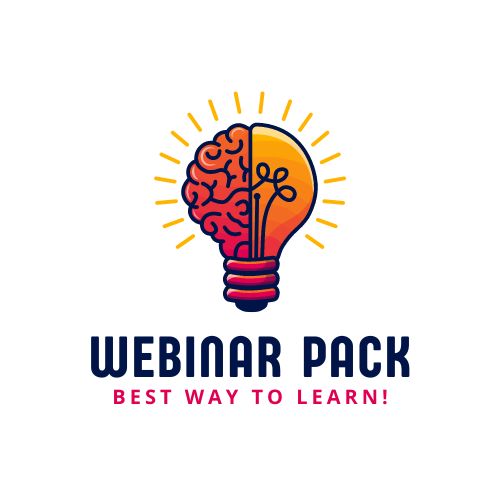Navigating FDA 510(k) Submissions: How to Sidestep Common Mistakes and Ensure Approval
Learn From the Pros to Get it Right the First Time and Get Your Product to Market Faster!

Instructor :
Charles H. Paul
Webinar ID:
8231
Date: APR 23, 2025 (WED)
Start Time: 10 AM PT - 11:30 AM PT
Duration: 90 Mins.

Buy This Course in a Pack at 25% Discount HERE:
” Fast-Track Your FDA Success: 2-Course Pack on Approval & AI-Driven Project Mastery”
2 Courses Included:
Why Buy This Pack?
-
- Optimization of Regulatory Processes: Combining AI insights with…..
Buy This Course in a Pack at 25% Discount HERE:
” Fast-Track Your FDA Success: 2-Course Pack on Approval & AI-Driven Project Mastery”
2 Courses Included:
Why Buy This Pack?
-
- Optimization of Regulatory Processes: Combining AI insights with submission strategies provides a robust approach to managing complex regulatory projects effectively.
- Gain Competitive Edge: Professionals will learn to leverage AI for better decision-making and more efficient submissions, positioning them as leaders in their field.
- Enhanced Productivity: This pack offers tools and techniques that can significantly improve project outcomes, reducing time to market and enhancing compliance.
Note: Do you want to custom design your pack and choose courses of your choice? Just drop us an email at support@compliancemeet.com or call at Toll Free: +1 (888) 959-4972. We’ll be happy to help you!
Buy Both Courses at a 25% discount HERE
What you will learn
-
- Define And Describe The 510(k) Submissions Process
- Define And Find Predicate Devices
- Describe 510(k) Submission Structure And Assembly
- Explain Traditional 510(k) Submission Contents
- Determine When To Execute A Traditional 510(k) Submission
- Explain Special 510(k) Submission Contents
- Determine When To ….
-
- Define And Describe The 510(k) Submissions Process
- Define And Find Predicate Devices
- Describe 510(k) Submission Structure And Assembly
- Explain Traditional 510(k) Submission Contents
- Determine When To Execute A Traditional 510(k) Submission
- Explain Special 510(k) Submission Contents
- Determine When To Execute A Special 510(k) Submission
- Explain Abbreviated 510(k) Submission Contents
- Determine When To Execute An Abbreviated 510(k) Submission
Course Description
Did you know that 75% of first-time 510(k) submissions are rejected by the FDA? Even more concerning, 85% of those rejections are due to poor substantial equivalence—a staggering statistic that highlights the challenges in this process.
This 90-minute interactive training is your key to unlocking a smoother submission process and avoiding the common pitfalls that lead to costly delays and rejections.
What You’ll Learn:
- Understand the 3 types of 510(k) submissions: Traditional, Special, and Abbreviated.
- Navigate the increasingly rigorous 510(k) process, influenced by the following key changes:
- Recognition of several international standards by the FDA, now mandatory for 510(k) submissions.
- The requirement of a structured submission approach, including both paper and electronic copies.
- Introduction of the “Refuse-to-Accept” (RTA) process by the FDA.
- Sub-division of submissions among FDA reviewers, leading to closer scrutiny.
- Compliance with specified test lab standards and their identification in the 510(k) submission.
- Understanding the “Additional Information Required” (AI) process, where the FDA requests more information.
Why This Matters:
Selecting the proper submission method and understanding these changes are critical to your submission’s success.
Charles H. Paul, a regulatory consultant with over 20 years of experience, will guide you through the entire process—from identifying and determining a predicate device to selecting a submission method and completing the submission process for each method.
Don’t miss this opportunity to ensure your 510(k) submission is on the path to success.
Join Now!
Did you know that 75% of first-time 510(k) submissions are rejected by the FDA? Even more concerning, 85% of those rejections are due to poor substantial equivalence—a staggering statistic that highlights the challenges in this process.
This 90-minute interactive training is your key to unlocking a smoother submission process and avoiding the common pitfalls that lead to costly delays and rejections.
What You’ll Learn:
- Understand the 3 types of 510(k) submissions: Traditional, Special, and Abbreviated.
- Navigate the increasingly rigorous 510(k) process, influenced by the following key changes:
- Recognition of several international standards by the FDA, now mandatory for 510(k) submissions.
- The requirement of a structured submission approach, including both paper and electronic copies.
- Introduction of the “Refuse-to-Accept” (RTA) process by the FDA.
- Sub-division of submissions among FDA reviewers, leading to closer scrutiny.
- Compliance with specified test lab standards and their identification in the 510(k) submission.
- Understanding the “Additional Information Required” (AI) process, where the FDA requests more information.
Why This Matters:
Selecting the proper submission method and understanding these changes are critical to your submission’s success.
Charles H. Paul, a regulatory consultant with over 20 years of experience, will guide you through the entire process—from identifying and determining a predicate device to selecting a submission method and completing the submission process for each method.
Don’t miss this opportunity to ensure your 510(k) submission is on the path to success.
Join Now!
Why you should attend
In today’s regulatory environment, the FDA’s scrutiny of 510(k) submissions has never been more rigorous. A single misstep in your submission can result in significant delays—setting your project back months or even years.
Why Attend?
-
- Increase Your Chances of First-Time Approval: Companies that leverage insider knowledge and strategic planning have a 70% higher chance of approval on their first attempt.
- Avoid Costly Administrative Errors: If your submission is rejected during scientific review, the FDA is doing its job. However, if it’s rejected during administrative review—such as under the Refuse-to-Accept (RTA) guidance—that’s on your company. Understanding and avoiding these pitfalls is crucial.
- Master the Complex Regulatory Process: The complexity of the approval process has increased significantly. To ensure your product reaches the market, you must be fully knowledgeable about the regulatory submissions process. This knowledge is essential for the survival and success of your business.
What You’ll Learn:
-
- How to select the correct submission type for your medical device.
- Best practices for preparing submissions to meet FDA requirements.
- Detailed insights into the contents of each submission type.
- A comprehensive understanding of the FDA review process.
- Why mastering the review process is critical to your submission’s success.
Join Now to ensure your submission is on the path to approval and avoid the common pitfalls that can lead to rejection.
In today’s regulatory environment, the FDA’s scrutiny of 510(k) submissions has never been more rigorous. A single misstep in your submission can result in significant delays—setting your project back months or even years.
Why Attend?
-
- Increase Your Chances of First-Time Approval: Companies that leverage insider knowledge and strategic planning have a 70% higher chance of approval on their first attempt.
- Avoid Costly Administrative Errors: If your submission is rejected during scientific review, the FDA is doing its job. However, if it’s rejected during administrative review—such as under the Refuse-to-Accept (RTA) guidance—that’s on your company. Understanding and avoiding these pitfalls is crucial.
- Master the Complex Regulatory Process: The complexity of the approval process has increased significantly. To ensure your product reaches the market, you must be fully knowledgeable about the regulatory submissions process. This knowledge is essential for the survival and success of your business.
What You’ll Learn:
-
- How to select the correct submission type for your medical device.
- Best practices for preparing submissions to meet FDA requirements.
- Detailed insights into the contents of each submission type.
- A comprehensive understanding of the FDA review process.
- Why mastering the review process is critical to your submission’s success.
Join Now to ensure your submission is on the path to approval and avoid the common pitfalls that can lead to rejection.
Areas Covered
-
- Define and Describe the 510(k) Submissions Process
- Define a Predicate Device
- Explain How to Find Predicate Devices
- Describe How a 510(k) Submission is Structured and Assembled
- Explain the Contents of a Traditional 510(k) Submission
- Describe When a Traditional 510(k) Submission Must Be Executed
- Explain the Contents of a Special 510(k) Submission
- Describe When a Special 510(k) Submission Must Be Executed
- Explain the Contents of an Abbreviated 510(k) Submission
- Describe When an Abbreviated 510(k) Submission Must Be Executed
BONUS:
-
- PDF copy of the presentation handout for your future reference.
- Soft copy of the certificate of completion on request.
- Q&A Session with the Presenter: Get your pressing questions answered verbally, via chat or email
-
- Define and Describe the 510(k) Submissions Process
- Define a Predicate Device
- Explain How to Find Predicate Devices
- Describe How a 510(k) Submission is Structured and Assembled
- Explain the Contents of a Traditional 510(k) Submission
- Describe When a Traditional 510(k) Submission Must Be Executed
- Explain the Contents of a Special 510(k) Submission
- Describe When a Special 510(k) Submission Must Be Executed
- Explain the Contents of an Abbreviated 510(k) Submission
- Describe When an Abbreviated 510(k) Submission Must Be Executed
BONUS:
-
- PDF copy of the presentation handout for your future reference.
- Soft copy of the certificate of completion on request.
- Q&A Session with the Presenter: Get your pressing questions answered verbally, via chat or email
Who is this course for
The following benefits from watching this. Even better when done as a group!
-
- Regulatory Affairs Specialist
- Quality Assurance Manager
- Medical Device Engineer
- Regulatory Compliance Officer
- Product Development Manager
- Clinical Affairs Specialist
- Regulatory Affairs Manager
- Quality Systems Manager
- R&D Engineer
The following benefits from watching this. Even better when done as a group!
-
- Regulatory Affairs Specialist
- Quality Assurance Manager
- Medical Device Engineer
- Regulatory Compliance Officer
- Product Development Manager
- Clinical Affairs Specialist
- Regulatory Affairs Manager
- Quality Systems Manager
- R&D Engineer
Instructor Profile
Charles H. Paul is the President of C. H. Paul Consulting, Inc. – a regulatory, training, and technical documentation consulting firm. Charles has been a regulatory consultant to the life sciences industry for over 20 years and has published numerous white papers on the subject. The firm works with both domestic and international clients designing solutions for complex human performance and compliance-related problems.
